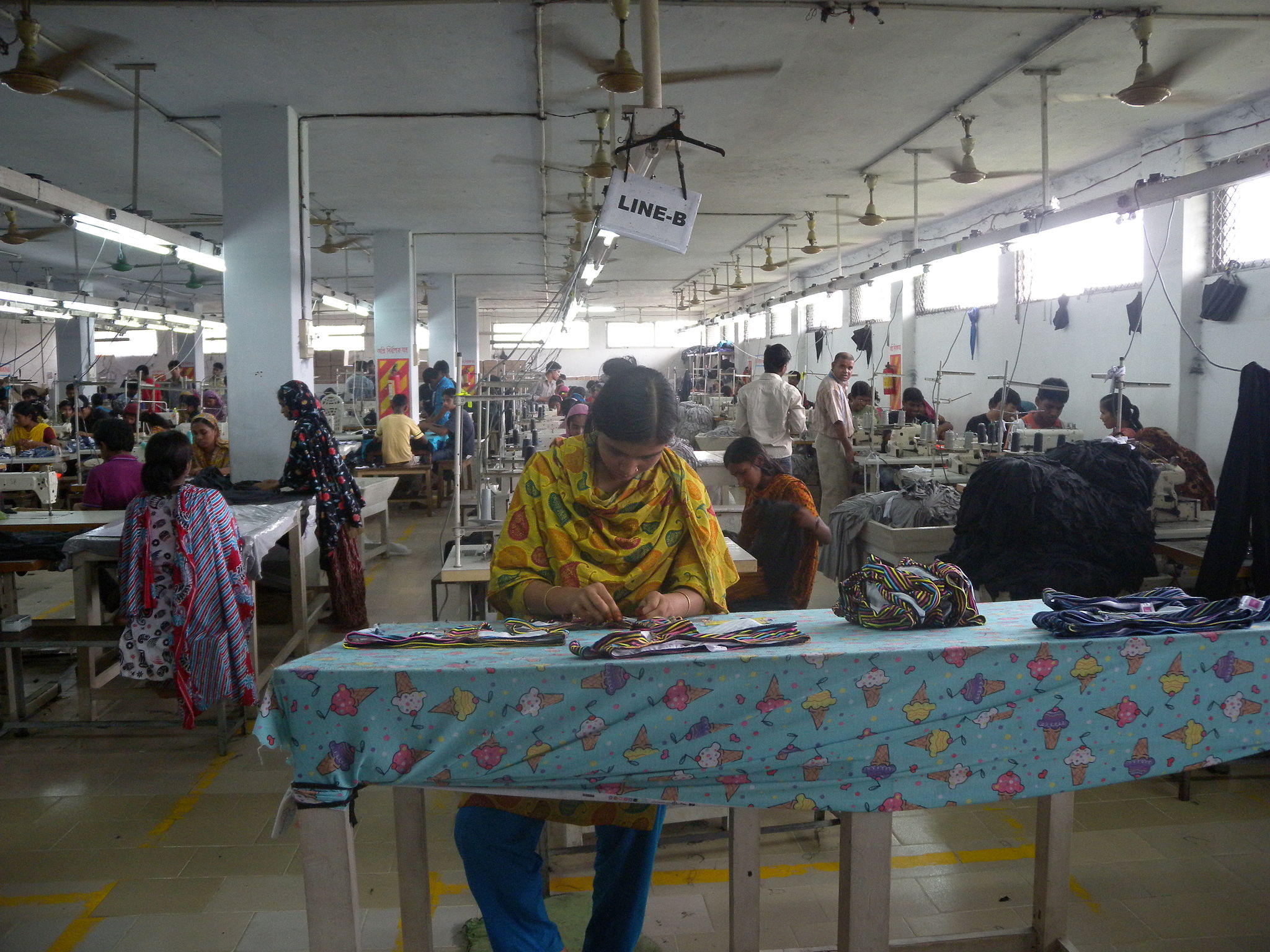Social Norms, Technology Adoption, and Team Productivity

A garment factory assembly line in Bangladesh. Photo Credit:
Tareq Salahuddin on Wikimedia Commons
Policy Context
Low firm productivity in low- and middle-income countries is an important barrier to sustained economic growth, which leads to rising income and creation of jobs. While existing literature largely focuses on the effects of inefficient behaviors on firm productivity and economic development, the research team asks why certain behaviors arise.
This project hypothesizes that specific cultural norms hinder the adoption of productivity-enhancing behaviors. The team focuses on the role of social structure on technology adoption within firms.
Study Design
Using production data from Bangladeshi garment factories, the research team previously documented that low-status individuals have valuable, productivity-improving information to share. In Bangladesh, however, social structure plays a prominent role, and high-status individuals are likely to be unwilling to receive information from low-status individuals. For instance, men may be unwilling to be instructed by women because they consider such interactions as disrespectful. They also identify age, ethnicity, and religion as important characteristics in determining social status in Bangladesh.
Now, collaborating with 15 Bangladeshi garments factories, researchers implement two field experiments in which we will inject information about productivity-enhancing practices through selected individuals. They study how social status affects technology adoption and the downstream effects on productivity. They also conduct a complementary incentivized-survey experiment to estimate the mechanisms governing workers’ behavior.
Results and Policy Lessons
In this study, researchers focus not on whether or not specific policies work, but on why we see certain behaviors. As such, their results will have direct implications for policy design and implementation in low- and middle-income countries, where informal institutions tend to be more prominent and deeply ingrained social hierarchies exist.
This study also directly addresses social barriers to the inclusion of lower-status individuals in firms’ decision-making; researchers aim to provide evidence on approaches that promote the inclusion of socially inferior individuals, who are often members of marginalized groups, in
firms’ decision making processes.
Finally, by studying one potential mechanism explaining reduced firm productivity in developing countries, this study contributes evidence that can inform policies to increase firm productivity and job opportunities in low- and middle-income countries.
Results forthcoming.

